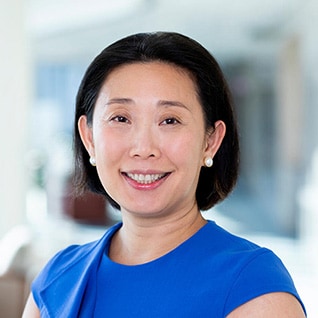Department and Faculty
The Department of Neurology at Mayo Clinic is a highly integrated, collaborative department of adult and pediatric neurologists who specialize in the research, diagnosis, and treatment of more than 500 conditions and diseases affecting the nervous system.
More than 100 specialists provide evaluation and continuing care for patients with neurological diseases. Close collaboration with specialists in pediatric and adolescent medicine, speech pathology, neurosurgery, psychiatry and psychology, pain management, sleep disorders, and physical medicine and rehabilitation offer comprehensive care to Mayo Clinic patients.
The Mayo Clinic Foundation Epilepsy Center in Rochester, Minnesota, is a Level 4 National Association Epilepsy Center. The Division of Epilepsy is a group of adult and child neurologists in the Department of Neurology with special training and expertise in the evaluation and treatment of epilepsy and seizures. Physicians in the division work closely with colleagues in neurologic surgery, nursing, neuroradiology, nuclear medicine, clinical neurophysiology, and neuropsychology to deliver comprehensive care for people with these disorders.
The Mayo Clinic Foundation Epilepsy Center provides surgical and medical management options for patients with epilepsy across the age spectrum. The average annual procedure volume includes 4,000 outpatient routine EEGs, close to 2,500 prolonged inpatient and ICU video EEGs, over 900 adult and pediatric monitoring unit admissions, and more than 100 extra- and intra-operative monitoring cases.
Our surgical program is a close collaboration among neurologists, neurosurgeons, neuropsychologists, and neuroradiologists, with weekly epilepsy surgery and stereoelectroencephalography (SEEG) planning conferences. SEEG monitoring culminates in therapeutic surgeries including resections, disconnections, and minimally-invasive laser interstitial thermal therapy as well as non-resective therapies using neuromodulation devices.
Our busy surgical practice averages more than 50 therapeutic epilepsy surgeries and more than 50 new neuromodulation device implants annually. Our biweekly Neuromodulation Clinic offers management and programming for the full range of peripheral, thalamic, and cortical stimulation closed and open loop device.
The Epilepsy Fellowship includes 13 clinician faculty, one non-clinician faculty, including five pediatric epilepsy subspecialists, and non-clinician faculty.
From the program director
 The Epilepsy Fellowship at Mayo Clinic's campus in Rochester, Minnesota, is committed to training expert epileptologists across the patient age spectrum.
The Epilepsy Fellowship at Mayo Clinic's campus in Rochester, Minnesota, is committed to training expert epileptologists across the patient age spectrum.
Our rigorous curriculum develops mastery in both surface and intracranial electroencephalogram, advanced imaging interpretation, and multidisciplinary management. Under expert clinician guidance, fellows will graduate with superior expertise, able to provide independent evidenced-based diagnostic and care plans.
Mentored scholarship is required. Our trainees have a prolific track record of research under recognized leaders in the Division of Epilepsy as well as Neurosurgery, Neuroradiology, Psychology, Neuroimmunology, and Medical Genetics.
Consequently, our graduates currently hold leadership positions in both academic and private practice care positions throughout the country. We look forward to you joining us to lead the future of epilepsy care.
On behalf of our outstanding physician-educator faculty, I am committed to your success.
Lily Wong-Kisiel, M.D.
Epilepsy Fellowship program director
Faculty
In addition to caring for patients in their clinical practices, Mayo Clinic's faculty members are committed to teaching and facilitating the growth of medical knowledge. You will have direct access to these individuals throughout your training program.
Advisers and mentors
Any of the divisional faculty may serve as your faculty adviser to provide comprehensive educational advice and personal support. Your adviser also serves as a contact point, introducing you and your family to Mayo Clinic and the communities in which you will train.
Visiting professors
Many prominent professors visit Mayo Clinic each year and present their work during lectures. Residents and fellows are encouraged to take full advantage of these opportunities to interact with experts from other academic centers and are relieved from clinical assignments to do so.